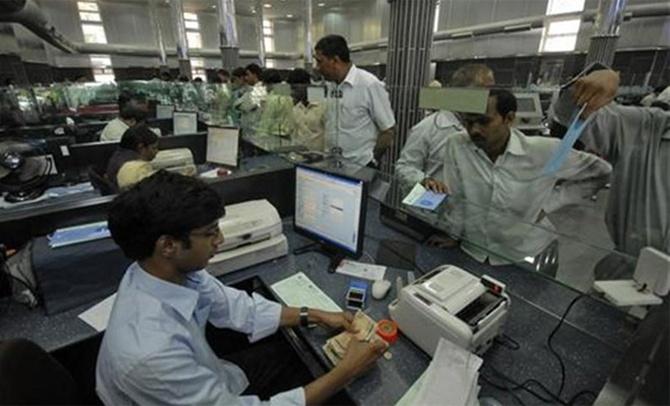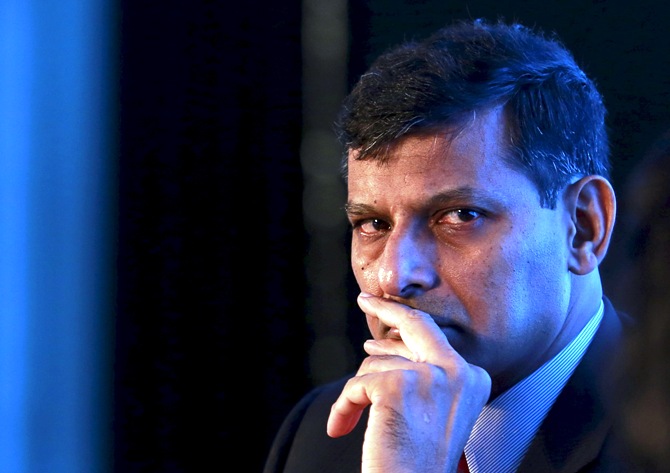My NPAs are reducing and recovery is going up. This will help us to augment our revenue, says R Subramaniakumar of IOB.
-- RBI, govt to help banks end NPA woes by Mar '17: Rajan
Chennai-based Indian Overseas Bank has seen tough times during the past two years.
Its non-performing assets have been growing, aggressive expansion increased costs and sudden migration to a new core bank system has put pressure on branches.
The bank's gross and net NPAs were the highest during the quarter ended December, at 22.4 per cent and 14.3 per cent of total advances, respectively.
This dragged growth down.
R Subramaniakumar, executive director, who has additional charge as managing director & chief executive officer, spoke to T E Narasimhan on how the bank was addressing the challenges and how it would achieve its target of sustainable profitable growth from the second quarter of 2017-18.
What were the key challenges for the bank and how were these addressed?
High NPAs, aggressive expansion and migration to core banking have been the challenges. A crisis management plan has been implemented and it is progressing well.
The bank has taken several initiatives to make sure assets are being used well by borrowers.
A lot of work has been done by the team, in respect of recovery. Our people are reaching out to every defaulter.
For example, education loans are one area where NPAs are high. The bank is giving training to borrowers who are unable to earn enough to repay and make them entrepreneurs.
Besides, 18 per cent of the NPAs are in steel, power and infrastructure.
With the government’s push and initiatives, capacity utilisation in these sectors increased to 60 per cent, from 30-40 per cent.
During the first quarter of 2016-17, slippages were Rs 5,600 crore. These were brought down to Rs 915 crore in Q3. Recovery was increased to Rs 2,400 crore from Rs 1,400 crore during the period.
But NPAs are still at around Rs 34,502 crore?
NPA are one of the biggest worries for the bank. Our corporate exposure was of 50-55 per cent.
A team sat with consortium leaders to deal with advances. Branch managers visited borrowers of Rs 1 crore and above to improve recovery. A recovery team was formed in every region.
A call centre was set up for housing loan customers. We introduced a skip tracing system and Rs 10 crore has been recovered.
NPAs are part of the business. The important part is whether these are under control.
At IOB, it is very much under control now. My NPAs are reducing and recovery is going up. This will help us to augment our revenue.
One reason for the bank's situation is aggressive expansion (around 1,000 branches) in two years. How are these performing?
Around 20-21 per cent of the 718 branches were loss-making about a year ago. This was brought down to 526 and the target is 250 in the coming year. If every unit makes a profit, it will be cumulative. This is one of the major strategies.
When you do expect the bank to turn around?
Credit is growing, the bank is able to generate revenue and recovery is good.
Interest income and other income increased to Rs 1,000 crore from around Rs 800 crore and will be increased to Rs 1,200 crore.
Branches have started doing profitable business.
All these factors will help the bank turn around from the second quarter of 2017-18.
IOB's exposure to corporate sector is high. How you are going to address this?
Corporate exposure is 40-50 per cent (down from 53 per cent). We will grow retail (by 20 per cent), the Micro, Small and Medium Enterprises (MSMEs) (14-15 per cent) and agriculture (by 20 per cent) businesses, which will help the bank compensate corporate book stress.
The government, which is a major shareholder, has set some parameters for further capital infusion. How much has been infused and are you expecting more?
The bank has surpassed the five parameters set by the government. We expect to get Rs 1,550 crore as additional capital.
What sort of growth is IOB is looking at this financial year?
Around 9-10 per cent.
Image used for representational purpose only.












